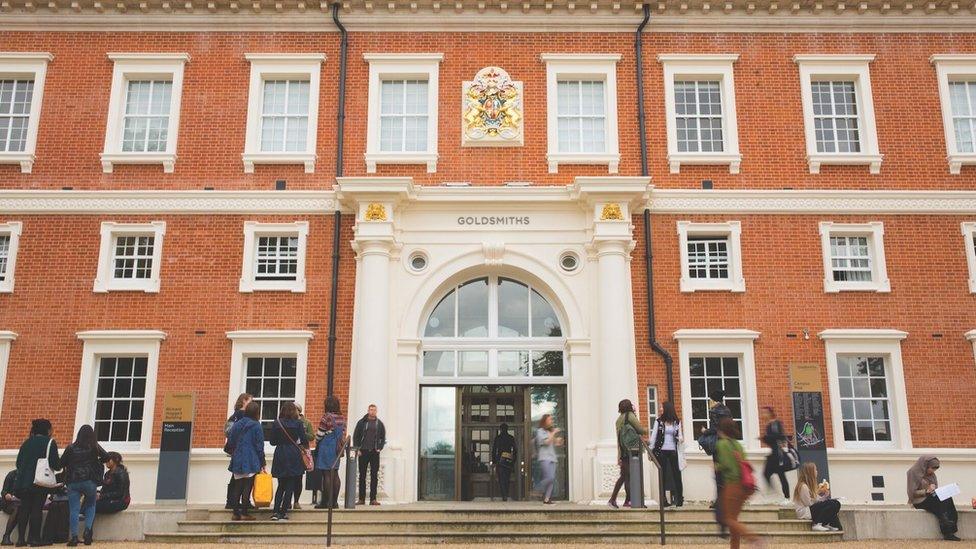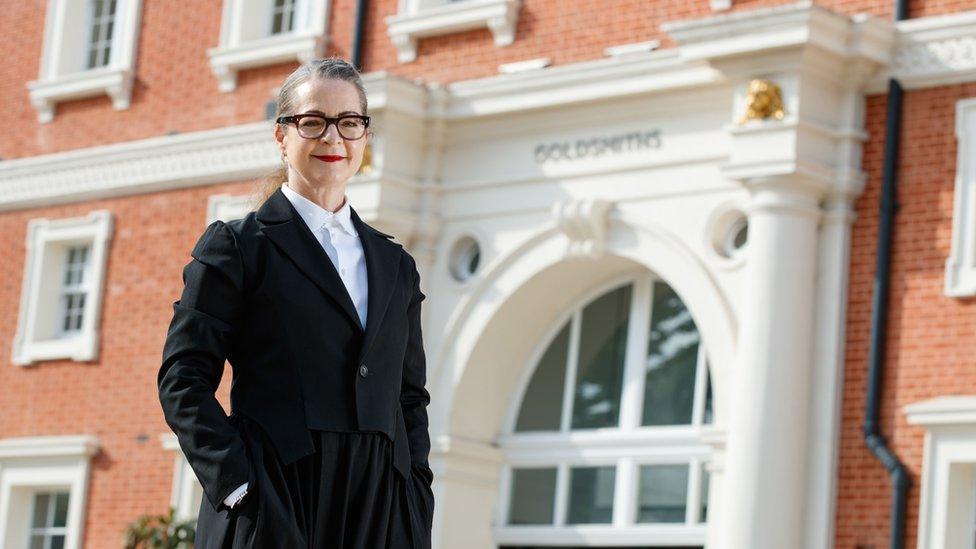University bans hamburgers 'to tackle climate change'
- Published

The changes will come into force in September
A university is banning the sale of burgers to try to fight global warming.
Goldsmiths, University of London, is removing all beef products from sale - and charging a 10p levy on bottled water and single-use plastic cups.
It plans to install more solar panels across its New Cross campus, in south-east London, and switch to a 100% clean energy supplier as soon as possible.
It will spend money on its allotment and identify other areas where planting could help to absorb carbon dioxide.
Carbon footprint
The university emits about 3.7 million kg of carbon each year but is hoping to become carbon neutral by 2025.
And it will try to increase the number of students studying climate change.
Scientists say beef is more damaging to the environment as cows produce more methane and require more land and water than other livestock.
The college's new head, Prof Frances Corner, said: "The growing global call for organisations to take seriously their responsibilities for halting climate change is impossible to ignore.

Prof Frances Corner says we face a "defining moment"
"Though I have only just arrived at Goldsmiths, it is immediately obvious that our staff and students care passionately about the future of our environment and that they are determined to help deliver the step change we need to cut our carbon footprint drastically and as quickly as possible.
"Declaring a climate emergency cannot be empty words.
"I truly believe we face a defining moment in global history and Goldsmiths now stands shoulder to shoulder with other organisations willing to call the alarm and take urgent action to cut carbon use."
Follow suit
Goldsmiths Students' Union president Joe Leam said: "Our house is on fire," invoking the words of teenage climate activist Greta Thunberg.
"I believe Frances Corner and the university management are realising this and making these changes to put their part of the house fire out.
"The SU will be a part of this process every step of the way to make sure this stays true, seeking to speed the process up wherever possible, and will keep the college community updated throughout."
Rosie Rogers, of Greenpeace UK, said: "It's encouraging to see an institution like Goldsmiths not simply declaring a climate emergency but acting on it.
"From energy use, to food sales and plastic pollution - all universities and organisations with campus sites can make changes across their facilities that are better for our planet.
"We call on others to urgently follow suit and to include cutting all ties from fossil fuel funding in their climate-emergency response."